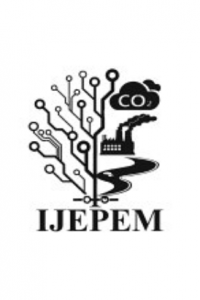Outlines of the Environmental Ethics of the Ofutop People
Outlines of the Environmental Ethics of the Ofutop People
Environment, Conservation Taboo, Totem,
___
- [1] Zimmerman, Michael (Ed) Environmental Philosophy: From Animal Rights to Radical Ecology. New Jersey, Prentice Hall; 2001. p3
- [2] Asuo, Oduora; Enyimba, Maduka. Environmental Philosophy: Concepts, Issues and Perspectives. Calabar: Grey Matter Company, 2012.p14-138
- [3] Sylvan, Richard. “Is there Need for a New, an Environmental, Ethic?”. Proceedings of the xv World Congress of Philosophy; No 1 Varna Bulgaria, 1973. p205-210.
- [4] Taylor, Paul W. “The Ethics of Respect for Nature” Environmental Ethics, Vol. 3, No. 3 (Fall 1981). p.197-218.
- [5] Omari, C.K. “Traditional African Land Ethics”. In Ethics of Environment and Development: Global Challenge, International Response. Ronald Engel, Joan Gibb Engels (eds) London: Belhaven Press, 1992. (168-175
- [6] Mbiti, John. African Religious and Philosophy. London: Heinemann, 1977.
- Yayın Aralığı: Yılda 2 Sayı
- Başlangıç: 2018
- Yayıncı: Yasin Akın AYTURAN
Outlines of the Environmental Ethics of the Ofutop People
Some Indigenous Solutions to African Environmental Problems: An Appraisal
An Investigation of Obligatory Anthropoholism as Plausible African Environmental Ethics
Enyimba’s Notion of Madukaku and The Question of Anthropocentricism In African Environmental Ethics
Towards an African Philosophy of Environment
Environmental Sustainability and Development in Africa: An “Egbe bere ugo bere” Approach.
Ethical Implication of Environmental Crises on African Societies A Challenge to Future Humanity.
Singer’s Notion of Speciesism: A Case for Animal Rights in Ejagham Culture
‘Anthropoholism’ As An Authentic Tool For Environmental Management
